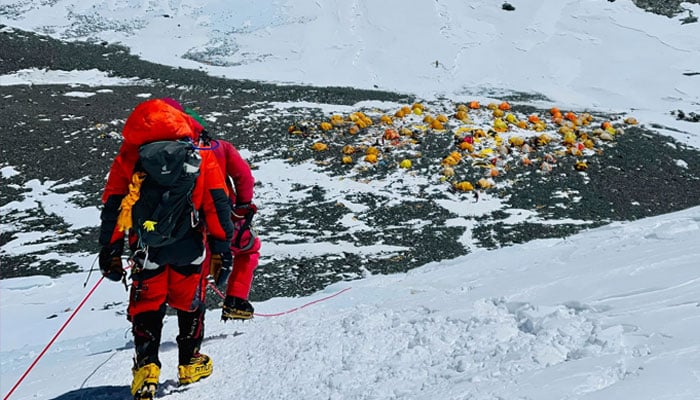Everest climbers now required to carry poop bags down from summit
New rules on everest: Climbers must address mounting poop problem
March 26, 2024

Ensuring climbers are equipped for the daunting ascent of Mount Everest now involves a rather unorthodox addition to their gear checklist: poop baggies.
In a joint effort to curb pollution in the world's highest altitude, the authorities have put in place new rules that require for climbers to carry their waste down to the base. Everest scaling is an expensive venture, typically costing anywhere from $35K upward which include the permit, equipment and the Sherpa guides fee.
Nonetheless, the increased numbers of climbers worsen an ages-old waste accumulation problem that occurs in the un-forgiving nature that slows down the natural degradation of waste.
Diwas Pokhrel, who is the first vice president of the Everest Summiteers Association, says this problem is one of the most serious ones. In this context he mentions how body wastes from the camping tents at higher altitudes polluted the mountain environment.
Without relief, the predicament would only have deteriorated further; especially since mountaineering permit issues have hit record last year. Jinesh Sindurakar of the Nepal Mountaineering Association enumerated that the climbers in this season are over 1200 and the waste products they generate are around 250 grams per day on average.
To tackle this, climbers are requested to take hold of poop bags which are meant to solidify and deodorise human waste. Nepal's Khumbu Pasanglhamu Rural Municipality is planning to give away more than eight thousand of those bags for the season.
Furthermore, mitigating measures in the mountains have also been stepped up, with efforts by the Nepali army resulting in over 35,0000 kgs of wastes and plastics snatched from several peaks including Everest, Lhotse, Annapurna and Baruntse according to the Himalayan Times.











